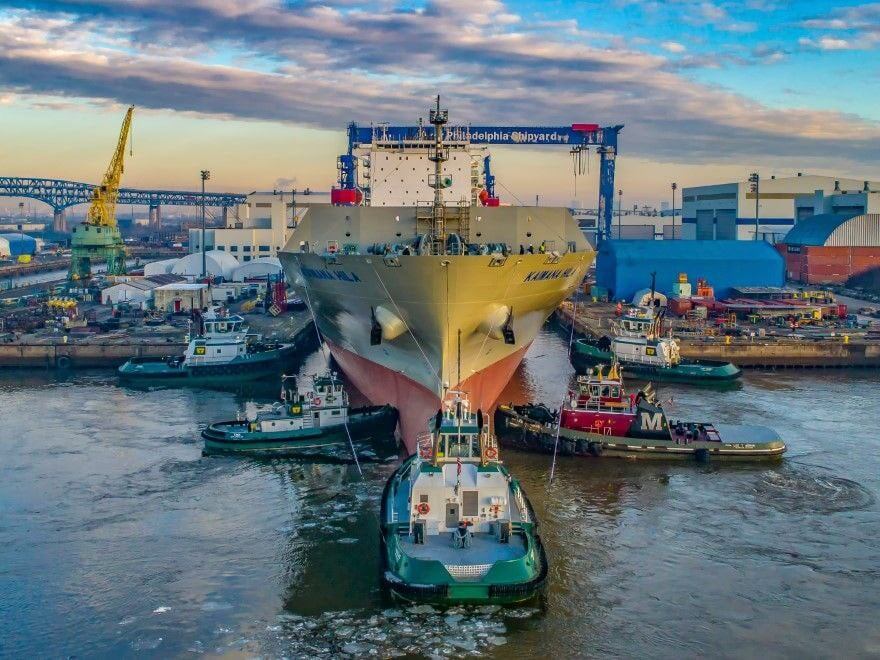
As U.S. trade policies change, South Korean shipbuilding companies are securing significant contracts, drawing work away from China. Under President Donald Trump's administration, there is consideration for imposing port charges of up to several million dollars on vessels manufactured in China. This policy adjustment has the potential to redirect more business opportunities toward South Korean enterprises.
On March 17, Hanwha Ocean revealed that they had received an order for six mega-sized container ships from Evergreen Marine, which ranks as the global market’s seventh-biggest shipping firm based in Taiwan. Each vessel can hold up to 24,000 TEUs (twenty-foot equivalent units) and represents Hanwha's initial contract with Evergreen. This agreement has a price tag of approximately 2.32 trillion Korean won ($1.75 billion), placing it among the costliest deals ever made by the company. "For many years, Chinese shipbuilding facilities have held sway over the sector of ultra-large container ships thanks largely to cheaper workforce expenses," commented a representative from Hanwha Ocean. "This recent transaction underscores our competitive edge."
On March 18, Samsung Heavy Industries announced that they had been awarded a $1.45 billion contract worth approximately 1.93 trillion won to construct nine shuttle tankers for an oceanic shipping company. This agreement represents about one-quarter of the firm's projected revenues for 2024. These vessels will move raw petroleum from sea-based drilling sites to land-based depots. Originally, this commission was anticipated to involve both South Korean and Chinese yards; however, Samsung ended up securing the entire project.

Experts in the industry suggest that this change might be driven by increasing limitations imposed by the United States on Chinese ship construction. This year, the U.S. placed CSSC (China State Shipbuilding Corporation) on a blacklist, and authorities in Washington are considering imposing dockage fees as high as $3.5 million for vessels constructed in China or managed by Chinese maritime enterprises upon their arrival at American ports. Such policy shifts are encouraging international shipping corporations to seek out alternate sources from countries like South Korea and Japan instead.

Our website uses cookies to improve your experience. Learn more